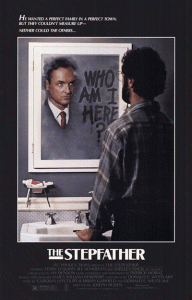 Yes, there’s Peter Lorre. Bernard Herrimann and Sam Peckinpah, Warren Oates. The great cinematographer Gregg Toland, Elisha Cook Jr., Thelma Ritter, John Huston and his dad, Walter. I can talk about the stars in Hollywood’s firmament, and the ones who weren’t stars but could have–and often did have–books written about them, or at the very least articles by esteemed scholars. And I will, trust me I will.
Yes, there’s Peter Lorre. Bernard Herrimann and Sam Peckinpah, Warren Oates. The great cinematographer Gregg Toland, Elisha Cook Jr., Thelma Ritter, John Huston and his dad, Walter. I can talk about the stars in Hollywood’s firmament, and the ones who weren’t stars but could have–and often did have–books written about them, or at the very least articles by esteemed scholars. And I will, trust me I will.
But there’s scores of modern character actors who haven’t yet been the subject of countless reminiscences, or who will earn their paychecks, put in a great day’s work, retire when they can’t remember their lines, and then vanish. Later, when watching one of their movies, you might snap your fingers and go, “who was that guy?” and then forget instantly as some star or famous face more intriguing comes on screen. Terry O’Quinn is one of those character actors that command our attention–until that bigger name comes along.
Look at him vs., say, Elisha Cook. I’ve seen any number of forgettable movies, and Cook stands out no matter who he’s with–Bogart, Lorre, Robert Blake, Sterling Hayden. Hell, I’ve rented shitty movies just because Cook was in them, if only for ten minutes. No one does that for Terry O’Quinn. And yet, he’s one of the greats.
O’Quinn is an actor who possesses a magnificent visual range; that is, he can make himself look like a wonderful, caring man or a hurt and taciturn soldier or a psychopath whose smile twitches ever so slightly to indicate he’s about to shove a paring knife into your eye. This was employed brilliantly in the 1987 classic, The Stepfather.
Before I delve into my dusty opinions of that great thriller (dusty because I’m giving you my feelings about a flick I saw twenty years ago and which I can’t find on DVD), let’s talk this guy’s career. I was trolling IMDb and found out that O’Quinn’s birthday was this week, remembered that he’s great, that he’s the only thing worth watching on “Lost” (yes, I have seen the show and think it silly). Imagine my surprise to learn that he cut his teeth in the 1970s at Central Michigan University, which is located in my home town of Mt. Pleasant. This is exactly the kind of factoid that runs like mad cow disease through my pock-holed brain: I think of O’Quinn wandering through Mt. Pleasant, a tiny, friendly little town that has nothing at all to do on most nights other than see movies, get stoned, read, play videos, or go see a friend’s band (since few bands ever visited.) Maybe he hung out in the Malt Shop where I played Joust and Tron. Maybe he bought a bong at Boogie Records when it was still around, or threw frisbees around the football field, which was open to the citizenry back then.
According to his fansite, he thought about music, so perhaps he was on our great public radio station there, spinning jazz late at night. Anyway, according to O’Quinn’s fansite, the guy was dared by a friend to try out for a role in Henry IV, and he landed the part. (You hear these things all the time and it never ceases to baffle me–who actually does this? Was O’Quinn a ham, a guy who’d leap up on a bar and recite from memory bits of the Bard’s best? Was it something he’d thought about for a long time, and then finally accepted when some close friend said “shut up and start acting?” How does one start a thirty-year career on a dare?)
O’Quinn goes to show that luck works in mysterious ways. CMU is not known as a hotbed of acting talent, and afterwards he moved up to larger roles in theater… in Baltimore. Baltimore? I never thought of Baltimore as a theater town. This, in turn, led to television and movies.
But it was a long, hard road for O’Quinn. Probably it still is, to a degree. Here’s a guy who goes from Central Michigan to Baltimore to movies, and with the directors and quality films he landed you’d think he would have got more, so much more. His first movie was Heaven’s Gate. Well, that’s a disaster you might say, but you’d be wrong–being in a smaller role in such a celebrated flop, with that great cast, shouldn’t hold a person back.
And it didn’t. Look at that line-up: Without A Trace, a high-profile film in its day; All the Right Moves, big because of that new star Tom Cruise; Places in the Heart, nominated for multiple Oscars (and it won one) and directed by Robert Benton. O’Quinn remained busy, chewing scenes in a Stephen King directed shit-fest called Silver Bullet, lots of TV, some other straight-to-video nothings. And then, in 1987, he made The Stepfather.
The Stepfather freaked me out. First, it starred O’Quinn, who I don’t think I’d seen before, or at least hadn’t remembered seeing. Second, it was just a great film. If my memory serves, The Stepfather was a bit of a drag on its parent studio, who didn’t know what to do with it. Thrillers weren’t de rigeur at the time, as everyone was feeding off such crap as the Friday the 13th and Nightmare on Elm Street garbage. Who needed a psychologically cunning movie that involves blood, but not too much, and mostly great performances?
Pauline Kael did. The controversial New Yorker film critic raved about The Stepfather, and it began to grow in stature. Again, if my memory serves, the movie did OK in theaters but was a big fat hit on video, which is where I saw it.
The Stepfather is the story of a man, who eventually goes by the name Jerry Blake (O’Quinn). When the film opens, Jerry is cutting off his beard and making his hair shorter. He dresses neatly, packs a suitcase, and walks out the front door… past a bloody living room filled with the butchered remains of his family. Jerry is a psychopath who is forever seeking a new family, one that is perfect. He preys on single-moms trying to deal with their numerous vulnerabilities, usually regarding unruly or troubled kids. When things don’t work out, he kills them, changes his appearance and his name, and moves to another town to begin again.
In this case, Jerry has hooked up with Susan Maine (former Charlie’s Angel Shelly Hack). But he’s having difficulty with Susan’s daughter Stephanie (Jill Schoelen, who is excellent). Stephanie doesn’t trust Jerry. We know she’s right not to trust Jerry. Things go pear-shaped quickly. Jerry’s anger surfaces in small, brutal ways, culminating in the vicious murder of Stephanie’s psychiatrist, in a scene I will never forget (that it involves a 2×4 is all I’ll tell you.) The portrayal of teenagers is perfect here, as is the vulnerability of the mom, the suburban lifestyle, everything. The film is spot-on in almost every way, from the acting to the brisk editing to the crack direction and a screenplay that leaves you guessing, and has a totally shocking ending that never insults its audience.
The Stepfather is that rarity–a great night’s entertainment that also makes you think. It reminds me of some of the great forgotten noirs of the day that we are only now celebrating, like Criss Cross, Desperate Hours, Detour, etc. At least I think it is. I’ll trust Kael to back me up on this one. That, and the fact that there are few movies from 1987 that haunt me to this day.
Plus, I seriously cannot think of a case where a character actor found a starring role that suited him so well. O’Quinn made this and The Stepfather 2 (which did have more blood and was painfully stupid) and then went back to TV and bit parts and just-barely-larger-and-not-
O’Quinn is getting his due nowadays for his role in “Lost”, even taking home his first Emmy, which is deserved. He’d be great in the movies again–a great cop, the edgy brains of a group of robbers, an intellectual, a sergeant. We need to see more of Terry O’Quinn, especially in the movies.
Terry O’Quinn was born July 15, 1952 in Newberry, Michigan, near Tahquamenon Falls in the Upper Peninsula. The town’s website mentions nothing about its famous son, and neither does Central Michigan University.
